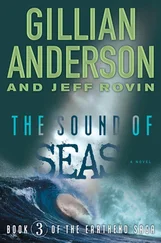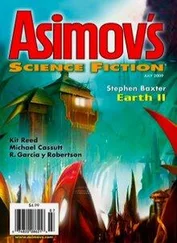Gillian Bradshaw - The Sand-Reckoner
Здесь есть возможность читать онлайн «Gillian Bradshaw - The Sand-Reckoner» весь текст электронной книги совершенно бесплатно (целиком полную версию без сокращений). В некоторых случаях можно слушать аудио, скачать через торрент в формате fb2 и присутствует краткое содержание. Жанр: Исторические приключения, на английском языке. Описание произведения, (предисловие) а так же отзывы посетителей доступны на портале библиотеки ЛибКат.
- Название:The Sand-Reckoner
- Автор:
- Жанр:
- Год:неизвестен
- ISBN:нет данных
- Рейтинг книги:3 / 5. Голосов: 1
-
Избранное:Добавить в избранное
- Отзывы:
-
Ваша оценка:
- 60
- 1
- 2
- 3
- 4
- 5
The Sand-Reckoner: краткое содержание, описание и аннотация
Предлагаем к чтению аннотацию, описание, краткое содержание или предисловие (зависит от того, что написал сам автор книги «The Sand-Reckoner»). Если вы не нашли необходимую информацию о книге — напишите в комментариях, мы постараемся отыскать её.
The Sand-Reckoner — читать онлайн бесплатно полную книгу (весь текст) целиком
Ниже представлен текст книги, разбитый по страницам. Система сохранения места последней прочитанной страницы, позволяет с удобством читать онлайн бесплатно книгу «The Sand-Reckoner», без необходимости каждый раз заново искать на чём Вы остановились. Поставьте закладку, и сможете в любой момент перейти на страницу, на которой закончили чтение.
Интервал:
Закладка:
Archimedes looked at him, frowning, and Gaius went on reluctantly, "Of prostituting himself to Greeks. To King Hieron, and to you, among others." Archimedes flushed angrily, and Gaius went on hastily, "Stupid accusations, but he had no way to refute them, except to get angry. So he got angry, and did not tell any lies, and the consul sentenced him to death."
Gaius reached over to the flute case and took something else from it: a fat black flask about the size of a child's fist, empty. "I was very glad that he had this," he went on, low-voiced. "The legions knew that Marcus was innocent- but since the beating had to take place, the fact that no one wanted to strike only meant that it would last longer. But in the morning, when they went to take him out of the tent where they were keeping him, he was already dead. He had this with him, this and the flute. Your gifts, weren't they?"
Archimedes shook his head. "Only the flute," he said soberly. "That was from Hieron. He told me that he'd given it to Marcus, just in case."
Gaius looked at him in surprise and doubt, then ran a finger around the top of the flask. "A gift from the king of Syracuse? I am indebted to the king. But I don't understand how King Hieron knew Marcus, or why he bothered."
"He knew your brother through me," replied Archimedes. "And he wanted Marcus to come back to Syracuse after the war and be his Latin interpreter. It would have been a good position, and Marcus would have filled it very well. Hieron told me about it. Your news will grieve him too." Archimedes got to his feet, holding the flute carefully in both hands. "It is waste, and nothing but waste. I don't know what your people will do to the world."
Gaius rose too, and bowed his head in a gesture that was neither denial nor acceptance. "Marcus was a Roman," he said. "I would ask you, sir, to remember that of us as well. But I don't want to quarrel with you. I am grateful for your kindness in speaking with me, and grateful also for your kindness to my brother while he lived. He admired you greatly."
Archimedes shook his head angrily. "I did not realize how exceptional your brother was until too late," he said. "I am much to blame. I hope it is some consolation to you to know that even as a slave he earned the respect of those around him." He hesitated, trying to think if there was anything else he should say, then realized that the visitors must have had a long walk from their camp, and asked them if they would like some wine.
They thanked him and agreed that they would, indeed, like something cold to drink. Archimedes started back toward the main part of the house; as he did, Fabius gestured at the lead-lined box in the center of the workroom and asked uneasily, "What is that machine? A new kind of catapult?"
"May all the gods and heroes forbid it!" Archimedes exclaimed vehemently.
He had never been so sick of anything in his life as he was of catapults. He'd lost track of how many he'd built: one-talenters, two-talenters, three-talenters, three-and-a-half- and four-talenters. And arrow-firing catapults, with particularly long ranges and particularly large bolts. Outworks to the walls had come as something of a relief. The nasty little surprises he and Kallippos had invented for any siege machine that did get close to the wall had seemed like the comedy tacked onto the end of a tragic cycle at the theater. There was a long list of other things that could be done, with time and supplies, if the war went on, and he was infinitely glad to have escaped them- for the time being, anyway. His relief at the peace had been as great as that of anyone in the city. "That is a water-aulos," he told Fabius happily. "Or it will be, when I finish it."
"A what?" asked Fabius confusedly.
Archimedes' eyes lit. "A water-aulos. See, you fill the tank with water, and you put this hemisphere in it." He hooked the holed basin off the tank's corner and held it, upside down, in the empty cistern. "And then you have one pipe coming down to this opening here, and another coming out from here, which is shut off unless you press the keys to open the valves- the valves are the cleverest part- and you pump the air in with the bellows. The water pressurizes the air, so that when you release it through the pipes, it produces a good volume of sound." He put the basin back over the corner of the tank. "I'm waiting for the pipes from the bronzesmith."
"But what is it for?" asked Fabius.
"It's a musical instrument!" said Archimedes in surprise. "I said it was a water-aulos, didn't I? My wife wants one."
"A musical instrument!" exclaimed Fabius, and shook his head wonderingly. "So peace has already reduced the greatest of engineers from the making of catapults to the making of flutes as an amusement for women!"
Archimedes stared at him in complete bewilderment for a moment, then went red. "Reduced?" he repeated furiously. "Catapults are stupid, god-hated lumps of wood which throw stones to kill people! I hope I never touch another of the filthy things in my life! This will sing with a voice like gold to the glory of Apollo and the Muses. This is as much superior to a catapult as… as…" He fumbled for a comparison, then gestured impatiently at the abacus, "… as that is to a pig!"
"But I don't know what that is, either!" said Fabius, amused.
"A calculation of the ratio between the volumes of a cylinder and an enclosed sphere," replied Archimedes with cold precision. He edged back toward it, and looked down, frowning. "Or an attempt to calculate it, anyway." The way into the problem, and the answer to it, had eluded him.
"But what use is that?" asked Fabius, coming over to look down at the drawings scratched in the sand: spheres and cylinders labeled endlessly with letters; letters repeated down the sides in inexhaustible calculations, in curves, in straight lines, in figures balanced and not balanced. So much intelligence, he thought, to be squandered upon air!
"It doesn't need a use," declared Archimedes, still looking down at his diagram. In his mind, a circle slipped up the line of the cylinder, its height the diameter, then revolved at the mid-point to form the sphere: perfect, more perfect than anything on earth. "It simply is." He studied his calculations and saw that they would get him nowhere. He picked up a flattened piece of wood and carefully smoothed the blind alley out.
"What are you saying?" asked Gaius in Latin. Fabius had translated nothing about the water-aulos: he had no idea what a "valve" was, or "pressurize," and he suspected that the words simply didn't exist in Latin.
"The box in the middle of the room is part of a musical instrument," said Fabius. "I said it was a sad descent from catapults to that, and he took offense. He said that music was nobler than war, and that this"- he gestured at the box of sand- "is nobler than anything."
As the dead end vanished into the sand, Archimedes saw suddenly the path along the spinning of the circle to the truth. Breathlessly he hooked the stool over with his foot and picked up his compasses. "Just a minute," he said to the visitors. "I've just seen something. Just go into the house and have a drink; I'll join you… in a minute."
The others looked at him in surprise, but he was already oblivious to them. The compass marked out its precise reckonings in the fine sand, and his face following it was rapt, intense, joyful. For the first time in his life, Fabius felt the foundations of his own certainties tremble. This mind was not bent upon air. The suddenly quiet room was filled with something that made the hair stand up along his arms, something that existed for no human use. Perspective altered dizzyingly, and he wondered what his own use was to a universe. Unaccountably afraid, he ducked his head and backed away.
When Delia came into the workroom a couple of hours later, she found Archimedes sitting on the ground, resting his head on the stool and gazing fondly at the abacus. "Dearest?" she said gently.
Читать дальшеИнтервал:
Закладка:
Похожие книги на «The Sand-Reckoner»
Представляем Вашему вниманию похожие книги на «The Sand-Reckoner» списком для выбора. Мы отобрали схожую по названию и смыслу литературу в надежде предоставить читателям больше вариантов отыскать новые, интересные, ещё непрочитанные произведения.
Обсуждение, отзывы о книге «The Sand-Reckoner» и просто собственные мнения читателей. Оставьте ваши комментарии, напишите, что Вы думаете о произведении, его смысле или главных героях. Укажите что конкретно понравилось, а что нет, и почему Вы так считаете.












